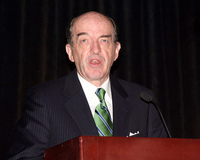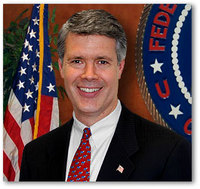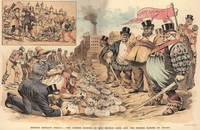 Susan Crawford reads the
700Mhz auction rules
and confirms the worst:
Susan Crawford reads the
700Mhz auction rules
and confirms the worst:
1. Those Carterfone protections don’t mean too much. The no-locking, no-blocking requirements are hedged in by substantial limitations: the winning licensee will be able to lock and block devices and applications as long as they can show that their actions are related to “reasonable network management and protection,” or “compliance with applicable regulatory requirements.” In other words, as long as the discrimination can be shown to be connected (however indirectly) to some vision of “network management,” it will be permitted. (Discrimination “solely” for discrimination’s sake is prohibited, but that’s not too difficult to avoid.)So it’s ILECs vs. CLECs, round two. Guess who’ll win?— Many, many devils in the details: 700 MHz rules, by Susan, from Susan Crawford blog, 13 Aug 2007
And even supposedly Cmr. Copps “grudgingly accepted” these rules. Seems to me we need a whole new FCC, so we can get some real rules of the road.
And what we really need is some real competition.
-jsq








